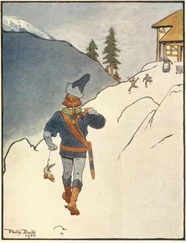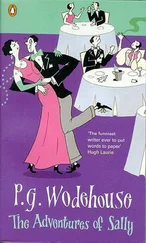Pelham Wodehouse - A Wodehouse Miscellany
Здесь есть возможность читать онлайн «Pelham Wodehouse - A Wodehouse Miscellany» весь текст электронной книги совершенно бесплатно (целиком полную версию без сокращений). В некоторых случаях можно слушать аудио, скачать через торрент в формате fb2 и присутствует краткое содержание. Жанр: Классическая проза, Юмористическая проза, на английском языке. Описание произведения, (предисловие) а так же отзывы посетителей доступны на портале библиотеки ЛибКат.
- Название:A Wodehouse Miscellany
- Автор:
- Жанр:
- Год:неизвестен
- ISBN:нет данных
- Рейтинг книги:3 / 5. Голосов: 1
-
Избранное:Добавить в избранное
- Отзывы:
-
Ваша оценка:
- 60
- 1
- 2
- 3
- 4
- 5
A Wodehouse Miscellany: краткое содержание, описание и аннотация
Предлагаем к чтению аннотацию, описание, краткое содержание или предисловие (зависит от того, что написал сам автор книги «A Wodehouse Miscellany»). Если вы не нашли необходимую информацию о книге — напишите в комментариях, мы постараемся отыскать её.
A Wodehouse Miscellany — читать онлайн бесплатно полную книгу (весь текст) целиком
Ниже представлен текст книги, разбитый по страницам. Система сохранения места последней прочитанной страницы, позволяет с удобством читать онлайн бесплатно книгу «A Wodehouse Miscellany», без необходимости каждый раз заново искать на чём Вы остановились. Поставьте закладку, и сможете в любой момент перейти на страницу, на которой закончили чтение.
Интервал:
Закладка:
At first, considerations of health did not trouble me. I was young and strong, and my constitution quickly threw off the effects of my dissipation. Then, gradually, I began to feel worse. I was losing my grip. I found a difficulty in concentrating my attention on my work. I had dizzy spells. I became nervous and distrait. Eventually I went to a doctor. He examined me thoroughly, and shook his head.
"If I am to do you any good," he said, "you must tell me all. You must hold no secrets from me."
"Doctor," I said, covering my face with my hands, "I am a confirmed soda-fiend."
He gave me a long lecture and a longer list of instructions. I must take air and exercise and I must become a total abstainer from sundaes of all descriptions. I must avoid limeade like the plague, and if anybody offered me a Bulgarzoon I was to knock him down and shout for the nearest policeman.
I learned then for the first time what a bitterly hard thing it is for a man in a large and wicked city to keep from soda when once he has got the habit. Everything was against me. The old convivial circle began to shun me. I could not join in their revels and they began to look on me as a grouch. In the end, I fell, and in one wild orgy undid all the good of a month's abstinence. I was desperate then. I felt that nothing could save me, and I might as well give up the struggle. I drank two pin-ap-o-lades, three grapefruit-olas and an egg-zoolak, before pausing to take breath.
And then, the next day, I met May, the girl who effected my reformation. She was a clergyman's daughter who, to support her widowed mother, had accepted a non-speaking part in a musical comedy production entitled "Oh Joy! Oh Pep!" Our acquaintance ripened, and one night I asked her out to supper.
I look on that moment as the happiest of my life. I met her at the stage door, and conducted her to the nearest soda-fountain. We were inside and I was buying the checks before she realized where she was, and I shall never forget her look of mingled pain and horror.
"And I thought you were a live one!" she murmured.
It seemed that she had been looking forward to a little lobster and champagne. The idea was absolutely new to me. She quickly convinced me, however, that such was the only refreshment which she would consider, and she recoiled with unconcealed aversion from my suggestion of a Mocha Malted and an Eva Tanguay. That night I tasted wine for the first time, and my reformation began.
It was hard at first, desperately hard. Something inside me was trying to pull me back to the sundaes for which I craved, but I resisted the impulse. Always with her divinely sympathetic encouragement, I gradually acquired a taste for alcohol. And suddenly, one evening, like a flash it came upon me that I had shaken off the cursed yoke that held me down: that I never wanted to see the inside of a drugstore again. Cocktails, at first repellent, have at last become palatable to me. I drink highballs for breakfast. I am saved.
IN DEFENSE OF ASTIGMATISM
This is peculiarly an age where novelists pride themselves on the breadth of their outlook and the courage with which they refuse to ignore the realities of life; and never before have authors had such scope in the matter of the selection of heroes. In the days of the old-fashioned novel, when the hero was automatically Lord Blank or Sir Ralph Asterisk, there were, of course, certain rules that had to be observed, but today‒why, you can hardly hear yourself think for the uproar of earnest young novelists proclaiming how free and unfettered they are. And yet, no writer has had the pluck to make his hero wear glasses.
In the old days, as I say, this was all very well. The hero was a young lordling, sprung from a line of ancestors who had never done anything with their eyes except wear a piercing glance before which lesser men quailed. But now novelists go into every class of society for their heroes, and surely, at least an occasional one of them must have been astigmatic. Kipps undoubtedly wore glasses; so did Bunker Bean; so did Mr. Polly, Clayhanger, Bibbs, Sheridan, and a score of others. Then why not say so?
Novelists are moving with the times in every other direction. Why not in this?
It is futile to advance the argument that glasses are unromantic. They are not. I know, because I wear them myself, and I am a singularly romantic figure, whether in my rimless, my Oxford gold-bordered, or the plain gent's spectacles which I wear in the privacy of my study.
Besides, everybody wears glasses nowadays. That is the point I wish to make. For commercial reasons, if for no others, authors ought to think seriously of this matter of goggling their heroes. It is an admitted fact that the reader of a novel likes to put himself in the hero's place‒to imagine, while reading, that he is the hero. What an audience the writer of the first romance to star a spectacled hero will have. All over the country thousands of short-sighted men will polish their glasses and plunge into his pages. It is absurd to go on writing in these days for a normal-sighted public. The growing tenseness of life, with its small print, its newspapers read by artificial light, and its flickering motion pictures, is whittling down the section of the populace which has perfect sight to a mere handful.
I seem to see that romance. In fact, I think I shall write it myself. "'Evadne,' murmured Clarence, removing his pince-nez and polishing them tenderly....'" "'See,' cried Clarence, 'how clearly every leaf of yonder tree is mirrored in the still water of the lake. I can't see myself, unfortunately, for I have left my glasses on the parlor piano, but don't worry about me: go ahead and see!" ... "Clarence adjusted his tortoiseshell-rimmed spectacles with a careless gesture, and faced the assassins without a tremor." Hot stuff? Got the punch? I should say so. Do you imagine that there will be a single man in this country with the price of the book in his pocket and a pair of pince-nez on his face who will not scream and kick like an angry child if you withhold my novel from him?
And just pause for a moment to think of the serial and dramatic rights of the story. All editors wear glasses, so do all theatrical managers. My appeal will be irresistible. All I shall have to do will be to see that the check is for the right figure and to supervise the placing of the electric sign
SPECTACLES OF FATE
BY P. G. WODEHOUSE
over the doors of whichever theatre I happen to select for the production of the play.
Have you ever considered the latent possibilities for dramatic situations in short sight? You know how your glasses cloud over when you come into a warm room out of the cold? Well, imagine your hero in such a position. He has been waiting outside the murderer's den preparatory to dashing in and saving the heroine. He dashes in. "Hands up, you scoundrels," he cries. And then his glasses get all misty, and there he is, temporarily blind, with a full-size desperado backing away and measuring the distance in order to hand him one with a pickaxe.
Or would you prefer something less sensational, something more in the romantic line? Very well. Hero, on his way to the Dowager Duchess's ball, slips on a banana-peel and smashes his only pair of spectacles. He dare not fail to attend the ball, for the dear Duchess would never forgive him; so he goes in and proposes to a girl he particularly dislikes because she is dressed in pink, and the heroine told him that she was going to wear pink. But the heroine's pink dress was late in coming home from the modiste's and she had to turn up in blue. The heroine comes in just as the other girl is accepting him, and there you have a nice, live, peppy, kick-off for your tale of passion and human interest.
But I have said enough to show that the time has come when novelists, if they do not wish to be left behind in the race, must adapt themselves to modern conditions. One does not wish to threaten, but, as I say, we astigmatics are in a large minority and can, if we get together, make our presence felt. Roused by this article to a sense of the injustice of their treatment, the great army of glass-wearing citizens could very easily make novelists see reason. A boycott of non-spectacled heroes would soon achieve the necessary reform. Perhaps there will be no need to let matters go as far as that. I hope not. But, if this warning should be neglected, if we have any more of these novels about men with keen gray eyes or snapping black eyes or cheerful blue eyes‒any sort of eyes, in fact, lacking some muscular affliction, we shall know what to do.
Читать дальшеИнтервал:
Закладка:
Похожие книги на «A Wodehouse Miscellany»
Представляем Вашему вниманию похожие книги на «A Wodehouse Miscellany» списком для выбора. Мы отобрали схожую по названию и смыслу литературу в надежде предоставить читателям больше вариантов отыскать новые, интересные, ещё непрочитанные произведения.
Обсуждение, отзывы о книге «A Wodehouse Miscellany» и просто собственные мнения читателей. Оставьте ваши комментарии, напишите, что Вы думаете о произведении, его смысле или главных героях. Укажите что конкретно понравилось, а что нет, и почему Вы так считаете.


